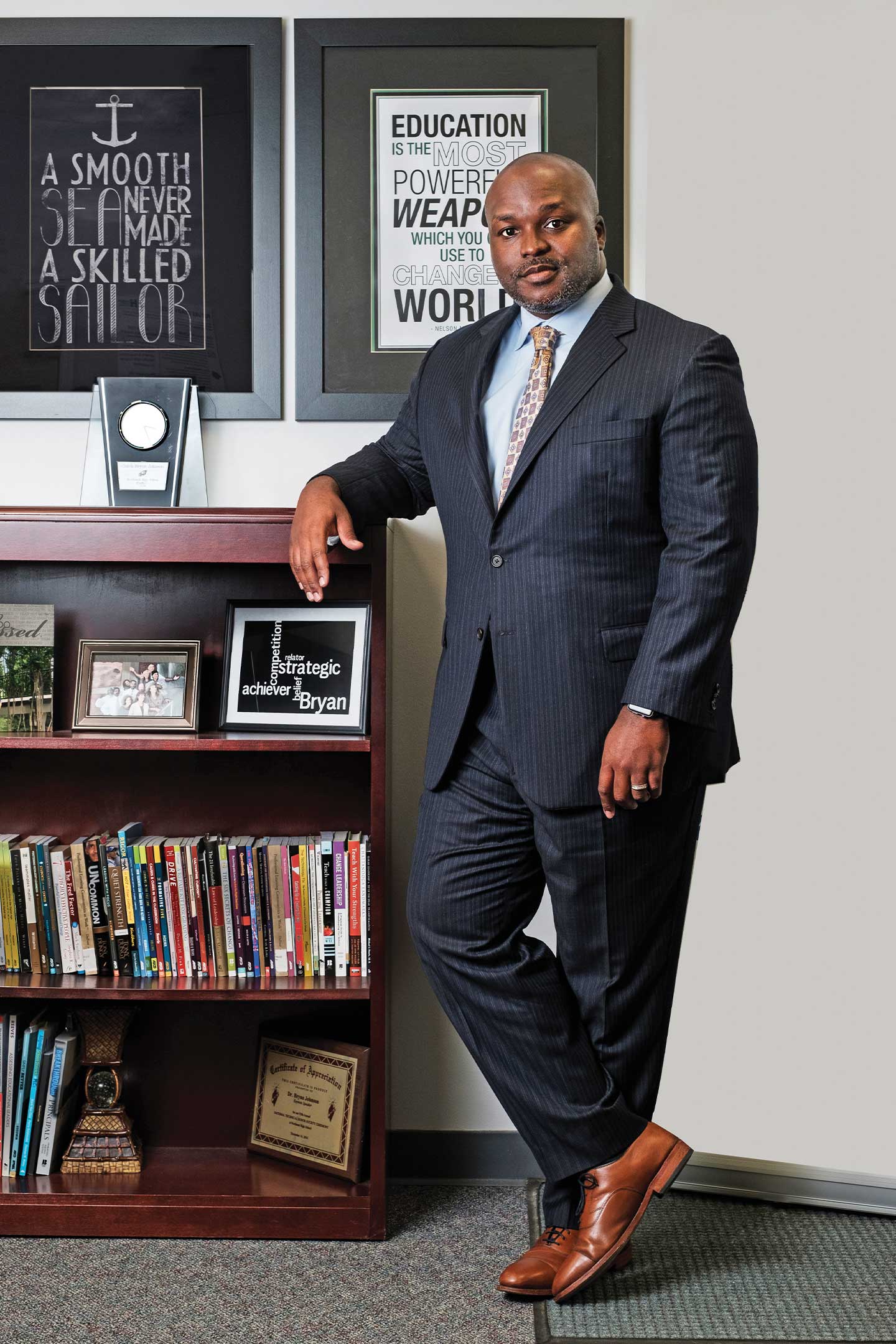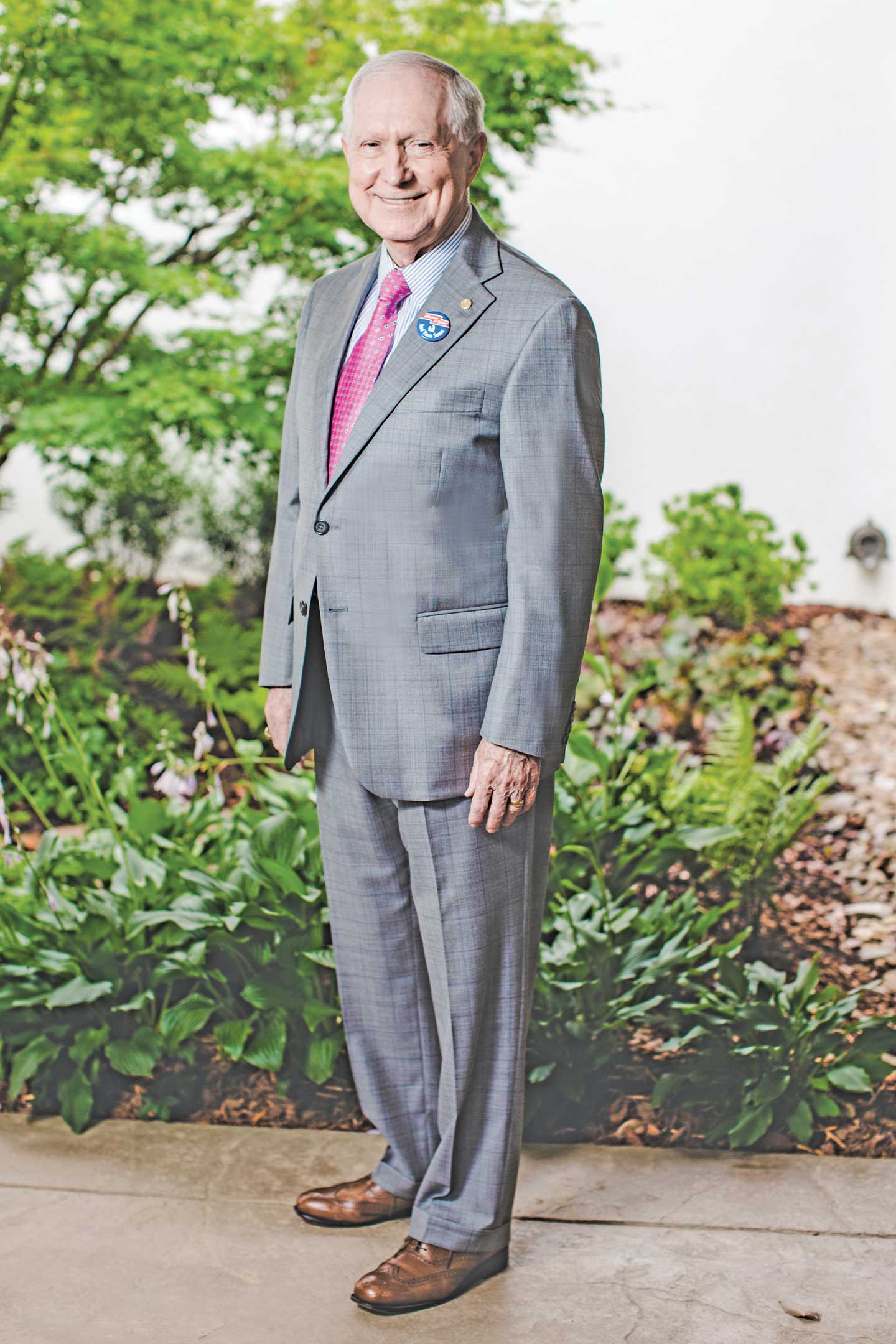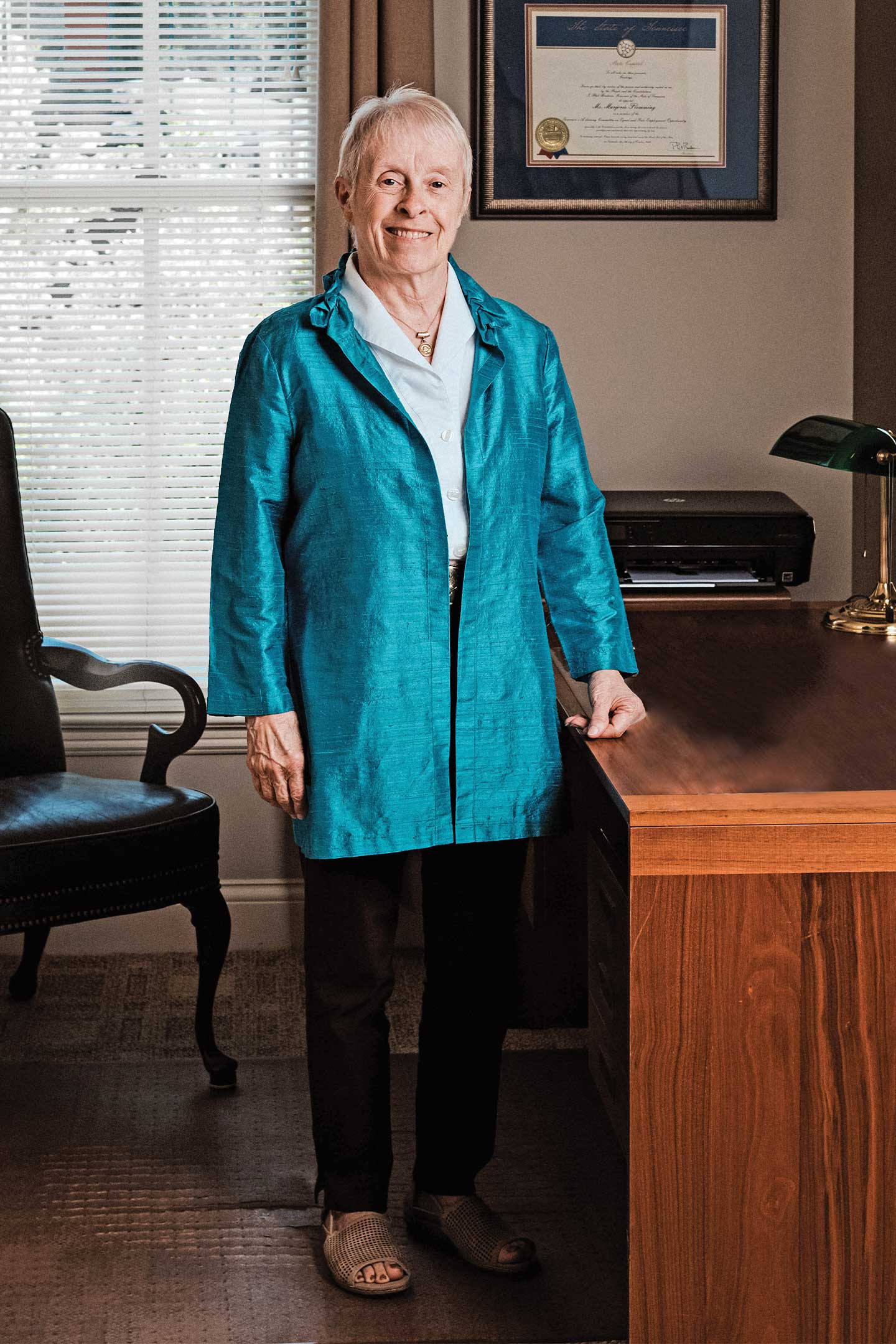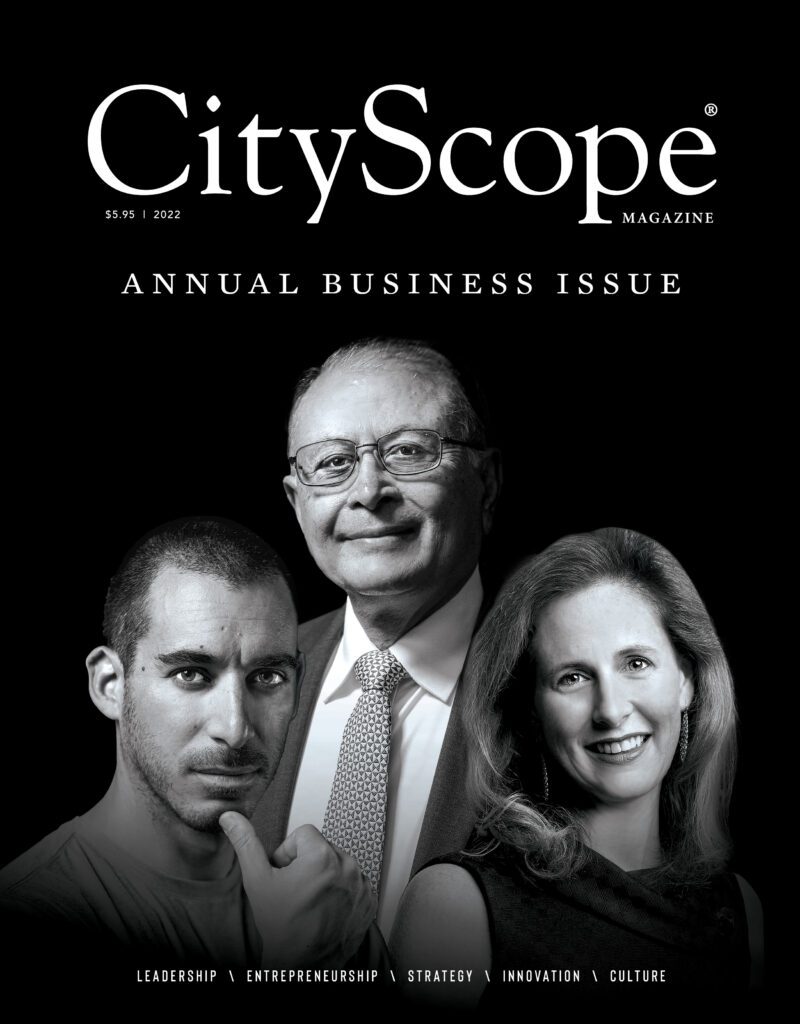“A good leader leads the people from above them. A great leader leads the people from within them.” -M. D. Arnold, Author
What is great leadership? While there are many forms and styles of leadership, you know great leadership when you see it. There is an inexpressible quality about it – but we asked local leaders to take on the challenge. Read on to hear their thoughts on great leadership.

Photo by Rich Smith
Dr. Rebecca Ashford
President, Chattanooga State Community College
Leadership is about culture, and leaders are the people who establish the culture in their organizations. They set the tone for communication that occurs within the organization. Great leaders are able to create a culture of trust. Employees thrive in organizations in which they feel safe to perform their best; this feeling of safety can only come in an environment in which they trust their leaders to be honest and to do the right thing.
Great leaders create an environment in which people feel safe and supported to try new ideas that will advance the organization (or college, in my case). I believe in hiring the best people and letting them do their jobs. People perform best when they are allowed to be innovative; successes are celebrated while failures are seen as learning opportunities.
Leadership does not only exist at the top of an organization. In order for an organization to advance, all employees – from the front-line staff, to middle managers, to executives – must see themselves as leaders with the freedom and responsibility to do the right thing every day.

Photo by Matt Reiter
Dr. Bryan Johnson
Superintendent, Hamilton County Schools
I believe great leaders are servants who care enough about those around them to make sure others are successful. The most impactful examples of servant leadership in my life were my mother and father. My late mother was a social worker and a caregiver for both of my grandmothers, her aunt, and great-aunt. My father is one of nine children, served our country in the military, and has spent 30 plus years as a pastor. My mother and father gave selflessly of themselves so that those around them could be successful.
Leaders must have a clear vision that guides their work. My parents laid out a clear path for me to follow. They expected me to work hard and treat others the way I desired to be treated.
Once success is experienced, great leaders must celebrate the achievements and ensure the members on their team share in any recognition. My parents always celebrated my success and took no credit, although they deserved more accolades than I could ever give.
I am humbled to have the privilege to apply the leadership lessons learned from my mother and father in my service to 44,000 children and 6,000 employees in our schools.

Photo by Rich Smith
Beecher Hunter
President, Life Care Centers of America
Jesus set the foundation for those who aspire to become a leader: “Whoever wants to be a leader among you must be your servant” (Matthew 20:26 NLT). Great leadership is servant leadership, which may sound like an oxymoron. And yet, that is what Jesus said for those who want to be ‘first among you.’ With that as the groundwork, there are three primary pillars to build one’s life around in order to be successful – for anyone, but particularly for leaders: 1) Love God and love others. If the 66 books of the Bible were to be condensed to just five words, it would be these. Our Lord said as much when asked about the greatest commandment (Matthew 22:36-40 NLT). 2) In any situation, seek to determine what is right, and then have the courage to pursue it. 3) Find the joy in life and work. The happiest people are the ones who find true meaning and purpose in living. Great leadership is the result of such construction.

Photo by Rich Smith
Becky Hansard
Head of School, Silverdale Baptist Academy
I believe that listening takes an ordinary leader from good to great. While this sounds simple and passive, it is not. Listening is active and takes a great deal of humility. As Andy Stanley taught us, a leader who does not have the skill of listening will soon find themselves surrounded by people who have nothing to say. Leaders can forget how much their listening ear empowers others.
Our church and academy are currently involved in a building project that, we pray, will enhance the lives of those in our community. As plans were in the infant stage, I was able to have a planning session with many of the academy employees, students, and parents who would be most impacted by our new center so that they could collaborate and dream together concerning the new center. The plan was for me to actively listen as others shared what they believed the center should look like in order for the academy portion of the project to best bring honor and glory to God. The ideas that came from that simple practice of listening on my part literally became the design of our upcoming Silverdale Center. Listening is an art and is an excellent tool to empower others.

Photo by Matt Reiter
Marj Flemming
Founder, Chattanooga Women’s Leadership Institute & Founder, LaunchPoint Leadership
Ah, the word ‘leadership.’ If we believe the job of a leader is to set up others (followers or peers) for success, then leadership must mean guidance, influence, and inspiration. It must mean taking people further than they could or would have gone without your assistance.
To me, becoming a leader is synonymous with becoming yourself. Until you have done some serious introspection to understand yourself, including strengths and weaknesses, others will not be willing to go where you want to go. They will not feel as though they can trust you to have their best interests in mind. They will not believe you are an authentic person. They will not believe you are a great leader.
I’m frequently asked if I believe effective leaders are born or made – and my answer is that they are both. It merely takes time for leadership traits as well as the capacity to lead to evolve.
Both positional and transformational leaders emerge with the same characteristics – energy, enthusiasm, and emotional stability, along with intentional decision-making, respect for individuals, trust, and innovation.
I believe leadership is heart-rending because as leaders we have an obligation to be constantly developing ourselves while developing others and enabling them to act.

Photo by Rich Smith
Frank Brock
Former President of Covenant College & Founder of BrowWood
The best leaders serve their stakeholders by having a clear vision and creating a culture of trust that empowers the rest of the team to work together to deliver superior products and services. Key values of good leaders include respect for the dignity of every human being, humility, service, a long-term perspective, willingness to fail, integrity, transparency, the importance of relationships, and community.
Photo by Rich Smith
Honorable Clarence Shattuck
Former General Sessions Court Judge
More than anything else, mutual respect makes a great leader. Many leaders have power to give directions and tell people what to do – just like a judge does – but having the power to do that does not make you a great leader. Great leadership is when it’s evident there is genuine respect for the leader, as well as the leader respecting those with whom they work.
A leader has the respect of their team when they are honest, fair, and considerate. They gain respect when they are a good listener and are able to collaborate. At the end of the day, a leader has to make the decision, but when they have listened to their team, they can make an informed decision. A leader also gains respect when they affirm their team. When you’re working with people, it’s much easier to criticize, but it’s more important that you affirm and encourage.






